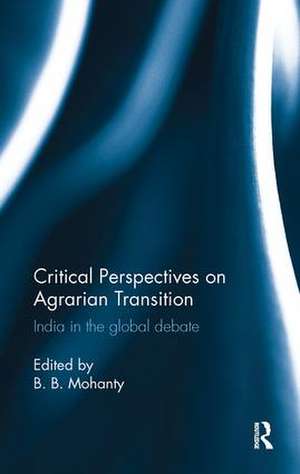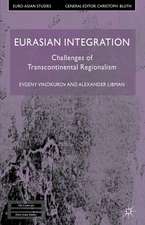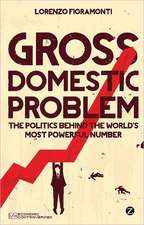Critical Perspectives on Agrarian Transition: India in the global debate
Editat de B. B. Mohantyen Limba Engleză Paperback – 24 ian 2018
With contributions from major scholars in the field, this volume will be useful to scholars and researchers of agriculture, economics, political economy, sociology, rural development and development studies.
| Toate formatele și edițiile | Preț | Express |
|---|---|---|
| Paperback (1) | 449.41 lei 6-8 săpt. | |
| Taylor & Francis – 24 ian 2018 | 449.41 lei 6-8 săpt. | |
| Hardback (1) | 1057.13 lei 6-8 săpt. | |
| Taylor & Francis – 28 ian 2016 | 1057.13 lei 6-8 săpt. |
Preț: 449.41 lei
Nou
Puncte Express: 674
Preț estimativ în valută:
85.99€ • 89.79$ • 71.01£
85.99€ • 89.79$ • 71.01£
Carte tipărită la comandă
Livrare economică 15-29 aprilie
Preluare comenzi: 021 569.72.76
Specificații
ISBN-13: 9781138488311
ISBN-10: 1138488313
Pagini: 328
Ilustrații: 44 Tables, black and white
Dimensiuni: 138 x 216 x 18 mm
Greutate: 0.45 kg
Ediția:1
Editura: Taylor & Francis
Colecția Routledge India
Locul publicării:Oxford, United Kingdom
ISBN-10: 1138488313
Pagini: 328
Ilustrații: 44 Tables, black and white
Dimensiuni: 138 x 216 x 18 mm
Greutate: 0.45 kg
Ediția:1
Editura: Taylor & Francis
Colecția Routledge India
Locul publicării:Oxford, United Kingdom
Public țintă
PostgraduateCuprins
List of Contributors List of abbreviations List of tables & Figures Foreword Preface and Acknowledgements Introduction Agrarian transition: from classic to current debates Part 1 Agrarian Transition: Theoretical Discourse 1. Back to the future? Marx, modes of production and the agrarian question 2. Revisiting agrarian transition: reflections on long histories and current realities 3. Contours of the agrarian question: Towards political question of ‘the peasantry’ in contemporary India Part 2 Global Capitalism, Neoliberalism and Changing Agriculture 4. Capitalist trajectories of global interdependence and welfare outcomes: the lessons of history for the present 5. Declining credibility of the neo-liberal state and agrarian crisis in India 6. Neo-liberal reforms, agrarian capitalism and the peasantry Part 3 Agrarian Transition: Regional Responses 7. Changing gender relations among Gounders in western Tamil Nadu villages 8. Agro-ecological double movements? Zero budget national farming and alternative agriculture after the neoliberal crisis in Kerala 9. Stressed commerce and accumulation process: a study of agrarian transition in West Bengal 10. Punjab’s Small Peasantry: Thriving or Deteriorating? Index
Notă biografică
B. B. Mohanty is Professor, Department of Sociology, Pondicherry University, Puducherry, India. His research interests are agrarian transition, farmer suicides and local governance. His recent work includes the edited volume Agrarian Change and Mobilisation (2012).
Recenzii
‘Readers of this splendid collection will encounter a set of thematically and regionally diverse, uniformly erudite, and politically provocative studies that link India’s past to its troubled present and that situate national realities in broader international debates about the agrarian question.’
– Marc Edelman, Professor of Anthropology, Hunter College and the Graduate Center, City University of New York
‘[This book’s] thought-provoking contributions span from a close interrogation of classic theories of the relationship between agrarian and industrial development, to new analyses of agrarian transition, class and the peasantry in India from a range of critical approaches.’
– Jens Lerche, Editor, Journal of Agrarian Change
‘Focused primarily on India and its regionally diverse trajectories of change, this volume tries to open up . . . questions [of rural and agrarian distress] afresh by invoking some of the classical debates and the dynamics of contemporary realities. Instead of offering simple or generalizable solutions it raises questions that need further engagement, empirically, theoretically and politically.’
– Surinder S. Jodhka, Professor of Sociology, Jawaharlal Nehru University, New Delhi
'The volume successfully captures the nuances of the Byres-Bernstein debate, including its elaboration of the classical agrarian question, its contemporary relevance, and its diversity across societies. The larger lesson from the volume concerns the nature of agrarian change and the question of mobilisation for progressive agrarian transition. The volume establishes the need to take the agrarian question seriously and poses important questions on the relevance of the agenda for agrarian reform. The Communist Party of India (Marxist) (CPIM) has recently observed.'
– Awanish Kumar, Tata Institute of Social Sciences, Review of Agarian Studies
– Marc Edelman, Professor of Anthropology, Hunter College and the Graduate Center, City University of New York
‘[This book’s] thought-provoking contributions span from a close interrogation of classic theories of the relationship between agrarian and industrial development, to new analyses of agrarian transition, class and the peasantry in India from a range of critical approaches.’
– Jens Lerche, Editor, Journal of Agrarian Change
‘Focused primarily on India and its regionally diverse trajectories of change, this volume tries to open up . . . questions [of rural and agrarian distress] afresh by invoking some of the classical debates and the dynamics of contemporary realities. Instead of offering simple or generalizable solutions it raises questions that need further engagement, empirically, theoretically and politically.’
– Surinder S. Jodhka, Professor of Sociology, Jawaharlal Nehru University, New Delhi
'The volume successfully captures the nuances of the Byres-Bernstein debate, including its elaboration of the classical agrarian question, its contemporary relevance, and its diversity across societies. The larger lesson from the volume concerns the nature of agrarian change and the question of mobilisation for progressive agrarian transition. The volume establishes the need to take the agrarian question seriously and poses important questions on the relevance of the agenda for agrarian reform. The Communist Party of India (Marxist) (CPIM) has recently observed.'
– Awanish Kumar, Tata Institute of Social Sciences, Review of Agarian Studies
Descriere
This book critically evaluates the relevance of classical debate on agrarian transition and extends the horizon of contemporary debates in Indian context, linking national trends with specifications of regional experiences. The author highlights changes in Indian agriculture along the axis of capitalist development and analyzes its effects across the country.














